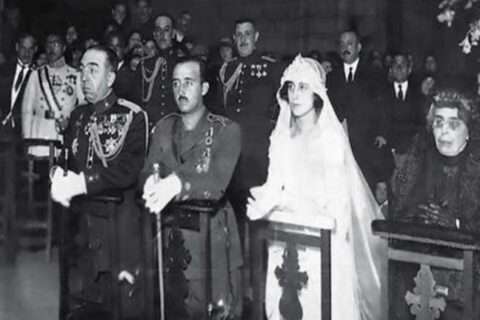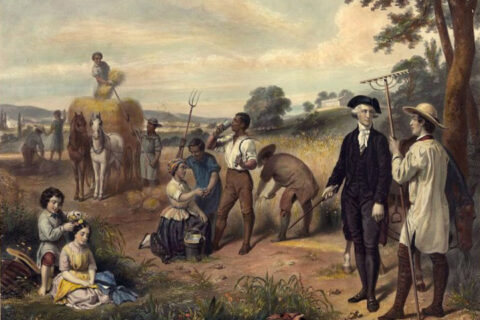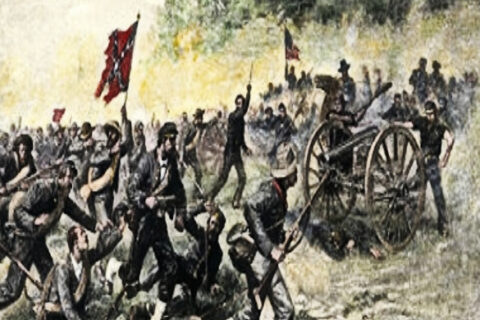Welcome to the first edition of “This Week in Southern History.”
JULY 21
1861: A Confederate army under Pierre Beauregard defeated Union troops under Irvin McDowell at the Battle of Manassas (referred to as “The Battle of Bull Run” up north).
The battle was the first major engagement of the War Between the States, and tested the mettle of many famous units that would gain fame and renown throughout the war. Likewise, the actions of General Thomas Jackson during the battle lent him the nickname “Stonewall” – which referred to his stubborn defense of Henry House Hill.
In the north, the battle is remembered for the heroic charge of the 69th New York State Militia under Michael Corcoran, and the death of James Cameron, the brother of the US Secretary of War.

1925: The “Monkey Trial”, during which schoolteacher John T. Scopes was found guilty of teaching the Theory of Evolution in class, ended. Scopes was fined $100 in this trial, which brought journalists from across the Union to Dayton, Tennessee.
JULY 22
1587: John White, who was sent by Sir Walter Raleigh to establish an English Colony in the Chesapeake Bay, arrived at Roanoke Island, modern day North Carolina, to pick up the Englishmen there and take them along. When he and the colonists arrived, they found nothing of the Englishmen who had been sent to Roanoke three years earlier – aside from the skeleton of what is believed to have been an English soldier.
Nevertheless, about 115 Englishmen, instead of going to the Chesapeake Bay, settled on Roanoke Island. It was three years before a resupply mission could be made to the new Roanoke Colony. When the mission arrived Roanoke Colony was gone without a trace, save for “CROATOAN” carved into the stockade.
To this day, the reason for the disappearance of the Roanoke Colony remains a mystery.
1864: The Battle of Atlanta, which consisted of a large scale assault by John Bell Hood’s 40,000 Confederates against 34,000 Union troops under William T. Sherman and James McPherson, ended in a Confederate defeat.
After the fierce battle, which devolved at points into hand to hand fighting, Sherman settled into a Siege of Atlanta, which surrendered to him in September.

The Battle of Atlanta is perhaps best known for the death of Union general James McPherson, the second highest ranking Union officer killed in the War Between the States.
JULY 24
1866: Tennessee became the first state re-admitted to the Union following the War Between the States.
1937: The State of Alabama dropped charges against the “Scottsboro Boys,” a group of negroes who were believed to have raped two white women.
JULY 26
1947: Union President Harry Truman officially de-segregated the United States Military. This allowed negro soldiers, who had conducted riots and attacks on Whites in the US Military during the Second World War, to serve alongside White soldiers.
JULY 27
1816: The most deadly single cannon-shot in American history was fired by US troops under Andrew Jackson at the Battle of Negro Fort. About three hundred rebelling negroes had taken up positions at Negro Fort in Florida, aided by several dozen Choctaw and Seminole Indians.

The first round of heated shot fired by the U.S. troops, who numbered around three hundred, went right into the fort’s powder magazine. The resulting explosion killed around 275 of the rebel negroes and their Indian allies. Subsequently, the American troops along with their Creek allies stormed the fort. The leader of the negro rebels, Garson, was shot by firing squad and the Choctaw chieftain was scalped and killed by the Creek.
1996: The Army of God conducted a bombing in Centennial Olympic Park, hoping to shut down the International Olympics and put pressure on the government to halt abortion. Two died and over one hundred were wounded in the bombing.
JULY 28
1868: The 14th Amendment to the Union’s Constitution guaranteed negro citizenship.
1932: Union President Herbert Hoover, confronted with the Bonus Army’s march on Washington D.C., ordered their removal by force. The Bonus Army was comprised of World War One veterans and their families, who sought the bonuses promised to them after the conclusion of the war.
I hope you enjoyed this first edition of “This Week in Southern History.” Was there something interesting or significant that we left out? Let us know over twitter, where our handle is: @identitydixie2, or let us know in the comments below.





Speaking of Scopes.. I wonder what graduate school the electric eels attended to
figure out how to generate 600 volts in their bodies and discharge a 1 Amp shot
to disable their prey… without killing themselves. This all before white people did
the research which resulted in the modern use of electricity.
More scientists are looking at ‘intelligent design’ to solve the problem that evolution
requires billions of uninterrupted years of progress to do its thing…..